|
Finding Work that Works A number of important alchemical manuscripts are reserved in the Vienna Staatsbibliothek. Among them I once found one entitled "The Garden Where the Task is Found." The content of this manuscript was not accessible to me. "- Rudolph Bernoulli. It took me a while to find the church. Earlier I had sought out the tomb of William Blake in London's Nonconformist Cemetery, the funereal lot of a Prophet, deemed too heretical in death as well as life, for the Church's embrace. Now, three hours from London, down a long, narrow passageway off a quiet city street, I sat alone in the stone-walled cell where, seven centuries before, the epiphanies of Julian of Norwich, England's most celebrated christian visionary, had transformed Europe's religious landscape. |
|
 |
An American, Thomas Merton, described English mysticism as possessing "less blood and anguish, less hellfire and horror than is to be found in any other school of Christian mysticism, and this, of course, is how it should be." Sitting in Julian's cell, brooding over her words, "All shall be well, and all shall be well, and all manner of things shall be well," I wondered why the apocalyptic-metamorphic dimension to Anglican mysticism has consistently taken on such a peculiarly paradisical bent - Marvell's "green thought in a green shade." What is it about English dirt? At the time, my internet access bills were running at about $1000 a month, the culmination of a working life that had begun in the international capital markets in London almost a decade previously and which then found me self-employed, falling out of the boardrooms of America's largest companies, where I'd been hyping the consequences of advanced internetworking technologies. The culture of the soil had never held the remotest appeal. But though I didn't know it, the questions I was mulling in Julian's cell were already propelling me irrevocably toward a belly-flop in a biodynamic compost pile deep in the Oregon woods. Now, six years later, a houseless green-thumbed mendicant, and full-time activist with Eugene's Food Not Lawns collective [see sidebar], I find myself at large in a community which the federal intelligence community insists is the most unruly urban pocket in the country. As I write, in late May, chic SUVs are sliding up to our gardens to issue federal grand jury subpoenas. Permies are seeking court-appointed attorneys. The knives are out. |
| Melding though and action
In a sense, the attention comes as no surprise. When the great 20th century Cabbalist, Abraham Joshua Heschel, insisted that effective prayer is fundamentally subversive he was touching on the essence of the nature of right livelihood as elucidated by his forebear, Shimon ben Gamliel, some centuries before: "Do not mistake talk for action. Compassion fills no mouths, pity builds no houses." It's an observation echoed by Sages across all cultures: true prayer involves annihilating the distinction between the active and the contemplative life, between thought and action. The being is the doing, as they might say. In Christian cosmology the credo has been expressed as 'laborare est orare," - literally, "work as prayer." And in the Bhagavad Gita, for example: "What is work? What is beyond work? Even some seers see this not aright. I will teach thee the truth of pure work, and this truth shall make thee free. Action is greater than inaction. Perform therefore thy task in life. The world is in the bonds of action. Because the victory won by he man of wisdom is also won by the man of good work. That man indeed sees the truth that vision and creation are one. Yoga is wisdom in work." |
|
| Trained as an economist, I've taken a sniff of every argument for the materialist justification of work since Adam Smith emerged as capital's first formal apologist. When I began my working life as a financial journalist in London in the early 1980's, a focus was the first major Third World debt rescheduling crisis. Then, as now, London's financial district ranked as the central processing unit of international capitalism. I spent years talking money and markets with financiers, many of whom were dear friends. And I became keenly aware that sound business decisions were killing people the world over. Slowly the picture filled out - a run-in or two with the Establishment here and there - and before long I had abandoned the international capital markets, utterly dismayed by the machinations of a system which struck me as increasingly and, more to the point, irresistibly savage. Surely, I thought, there has to be a better way. |
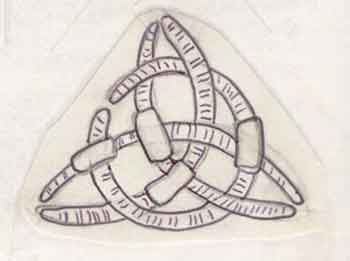 |
| Leaving the money train
I plummeted, floundered in a sea of confusion, then agonizingly re-engaged with the System around the Californian high-tech scene, to conclude my working life as a suit with a personal database that included contact information for the executive officers of most of America's biggest companies, the White House; others. But the contradictions inherent in trying to marry the rightful duties and responsibilities of husbandhood, for one, to the reality of a world in the grip of a form of mass insanity was tearing me apart. Money-making, never a passion, slipped further down the list of priorities. I found myself drawn inexorably toward charitable endeavors that simply weren't paying the bills. I was seeking my sanity, it felt, but the financial choices the instinct demanded were fueling the dissolution of my marriage. She let me go, gently. |
|
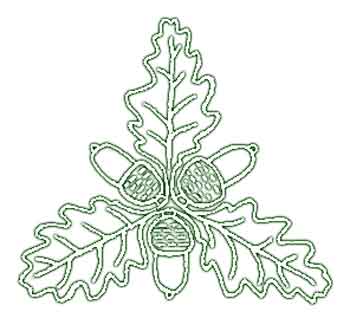 |
The English word "Paradise, comes from an old Persian word for garden - pairidaez. Pari means "around," and daeza means "wall." The Persians have long been known as the masters of the hortus conclusus - the closed gardens of the Middle East. But the idea that Paradise is a garden easily predates Persian culture. It's a very ancient one. 4,000 year-old Sumerian writings mention a Paradise garden for the Gods. The Garden archetype is, in fact, common to every wisdom tradition. Native American mythology, for one, is thick with mention of it. Finding the Garden's Depth I had always assumed the Garden as Paradise was simply a quaint religious symbol, a parable for the masses. A morality tale. Then the dirt got under my fingernails, and the re-education began in earnest. As Anita Lange puts it: "The prolonged, earnest practice of tending growth and harvest finely tunes a particular quality of attention that enables intimacy with wisdom inherent in the land. With growing discernment we learn which of our human understandings are in accord with the cycles of nature; a decisive requisite to being fully at home. |
|
Initiation to wisdom from the land lies beyond a baptism of rain and grit, beyond bone-weariness or wide-eyed wonder. It is only with senses fully awakened that we become present with ourselves within the wholeness of the world." I woke to a sense of Presence, a sense of place, a sense of destiny. I was without a plot of my own. From the beginning, I found myself helping nurture a community garden - not a collection of individual allotments within a shared space, but a single, shared garden physically located within a co-housing community, a playground for whoever wished to participate, with no one fulfilling the role of head gardener. |
|
|
There were particular aspects to the experience that shocked me to my core. There's an intelligence to children in the garden that defies all normative description. A magic. And they defined the heart of our experiment. I found children doing everything laying down the design of the garden as they played, to showing me revolutionary approaches to compost, to handholding me through my shyness in the garden as I handheld them. Indeed, their interactions with the garden seemed to bypass typical adult-child strictures and provided a context for them to potently fashion the entire context of our community, the politics of our world. The garden was their ally. And more than anything, I began to see how the depths and dimensions within the cycles of nature that for all our intellect we will never fathom became a part of us. I saw a mystery beyond mode and measure, the influence of a Harmony that fed our health - in part because its natural integrity not only responded to our love, but also defied our falsehoods, impatience, arrogance. I saw work in the garden bringing the Mystery back into us, shaping us all. We were bonded to the Spirit of Gaia, the Earth Logos, the Song of the Earth, call it what you will. |
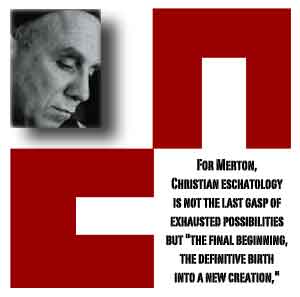 |
|
As the seasons passed, the gnosis deepened. Working with the avant-gardening community in the Whiteaker district of Eugene, we scoured the grapevine for any tidbits on the latest permacultural trends. Seeds, plants, counsel, we hungered for it. |
|
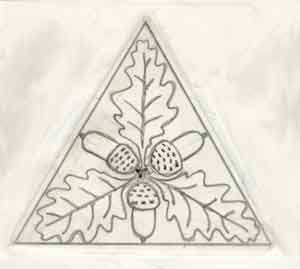 |
And gradually, our sense of how we we defined our context and how it defined us, evolved. Ever since I first stumbled into the eloquence of Wendell Berry, I'd been alerted to the relationship between landscape and virtue, but the posit had always been vague and unpracticed.
What was new was that I began to live the social implications of mixing and marrying the philosophies of the likes of Mollison, Jackson, Fukuoka, Steiner and Miles Davis. The boundaries between garden culture and community culture crumbled. And the veil that separated them dropped to reveal they had always been one and the same. And our Error had simply been a forgetting of that great ancient truth. |
I became fascinated with the relationship between sun cultures - plant guilds and human guilds - and what permaculturists could do in a landscape to nurture healthy cultural archetypes. Hedgerows, for one, took on an immense political significance. Our local sustainable horticulture study group had been reading and talking around the subject of Andean agriculture, the way it depends on its margins, incorporating them into the very structure of it form, as opposed to pushing them back to land unsuitable for farming as we moderns have long done. If, to paraphrase Wendell Berry, we can have agriculture only within nature, and culture only within agriculture ("At certain points these systems have to conform with one another or destroy one another."), then it was apparent that hedgerow guilds offered a prime example of the sort of reconciliation by which we could escape the endless swinging between center and margins, rigidity and revolt, that has plagued human culture for millennia. Berry suggests the remedy is to accommodate the margin within the form, to allow the wilderness to thrive in domesticity, to accommodate diversity within unity. Slowly, the landscape began to read like a living constitutional convention - but this one was organic, informed by Eternity, ever-changing, cyclical, wedded to a suprahuman truth. |
|
| The Gardener as Subversive
I began to sense why the English mystics spoke of peace with such authority: they were informed deeply by English gardens. Slowly, the apocalyptic-metamorphic dimension to deep wisdom traditions came, into sharp focus. All of them, from Hopi to Moslem, Buddhist to Christian, insist that historical time culminates with a return to peaceful cultural reconciliation and an accompanying return to an Edenic Paradise. The two transitions, one and the same. The implications hit me like thunderbolts. Human injustice hurts Mother Earth and Paradise isn't a mythic, "otherworldly" notion. Indeed, 'Paradise Gardening', as Joe Hollis refers to the creation of edible, perennial landscapes supporting "intensified foraging," is about literally co-creating Paradise, here and now, within this realm of experience. "Never mind the New Jerusalem," Martin Luther King insisted, "What about the New Atlanta?" |
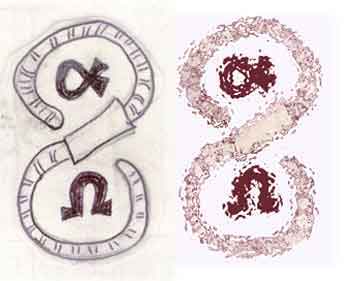 |
| Why then, if avant gardeners are in the work of rebirthing Eden, are G-men confiscating the clunkers we're using to haul compost? Is it because the security apparatus in this country correctly senses just how intrinsically subversive the work of an urban avant gardening collective is? The life of the soil fuels a Truth that points to the contradictions at the heart of the Great Lie, and in attuning ourselves to the Spirit of Gaia, permies inadvertently assume the role of mediators between that truth and the society we inhabit. We are prophets of the dirt and, as Heschel so astutely observed: "The role of the prophet is to interfere with injustice." The meeting of the avant gardeners and military intelligence always was a historical inevitability. I'm a mendicant who is comfortable talking monetary policy with central bankers, Situationist aesthetics with anarchist neo-primitivists, compassionate conservatism with Promisekeepers. In these, and indeed in all credos I have encountered, no matter how destructive, the defining impulse appears to be an honest-to-goodness effort on the part of individuals to make sense of what do to upon falling out of bed every morning - how, in a sense, to attune ourselves to the great unifying march of evolution. That it's a quandary for most of us isn't news: as Rilke put it, "There is an ancient enmity between our daily life and great work." But what if the clever reasonings of religious, political or academic think tanks, indeed the ancient paradigm-context that serves as a basis for all intentions, are proffering "answers" where there are no answers to be found? What if the secret to our collective truth is actually with-out explanation? What if it is to be found in the Mystery of the garden? |
|
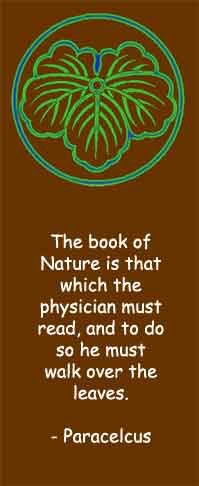 |
As we might expect, a workable approach to remaking Paradise turns clever certainties about the nature of constructive work upside down. Paradise gardeners are reknown for their "zero-work ethic" - Mollison's "reclining designer." That's because we are elementally about co-creating landscapes that are attuned to Nature's patterns and rhythms: self-sustaining, edible landscapes that require an absolute minimum of intervention on the part of the Gardener. In other words, no toil: ìConsider the lilies of the field, how they grow: they toil not, neither do they spin." The yoke is easy. Of course, taking it easy hardly fits in with conventional notions of virtue, but then again, our civilization's valuation of the nature of virtuous work may well be rotten to its core. As Terence McKenna puts it: "Now you see, the current theory of problem solving is that we must solve all our problems with solutions that make a buck. Well, it just may not be possible to solve the problems of the 20th century and make a buck at the same time. But if you're willing to put aside that notion, then the human future appears endlessly bright." Or, to paraphrase the words of the Christos, Mammon sits fundamentally at odds with the irresistible march of evolution. That, in a nutshell, is the stark truth underpinning a collaborative return to the Garden, perhaps the truest attunement to the Great Work we are capable of. "Work, motion, life," says William Bryant Logan, "All rise from the dirt." |
| In her cell, Julian of Norwich experienced a vision of a lord (God) and a servant (Christ). "I watched, wondering what kind of labor it could be that the servant was to do. And then I understood that he was to do the greatest labour and the hardest work there is. He was to be a gardener...and he was to persevere in his work, and make sweet streams to run, and fine and plenteous fruit to grow, which he was to bring before the lord and serve him to his liking." The vision culminates with the servant completing his gardening and being rewarded with the hand of his bride, the church. "Now, the spouse, God' son, is at peace with his beloved wife, who is the fair maiden of endless joy. God rejoices that he is our true spouse, and that our soul is his beloved wife." The Song of Solomon celebrates a similar correspondence between bride and garden: "A garden locked is my sister, my bride, a garden locked, a fountain sealed." In many ancient agricultural societies," Mircea Eliade tells us, "woman is assimilated to the soil, seed to the semen virile, and conjugal union to the work." Opening the door to Work amounts to opening the door to Paradise. Nick Routledge studies tai-chi in Eugene, Oregon. Previous livelihoods include writing for Euromoney magazine and curating, A Space Without A Goal, the Electronic Frontier Foundation's consciouness archive. |
|
|
Article appearing in July 2001 Permaculture Activist, an issue devoted to the subject of Good Work and Right Livelihood Words and art by n. |
|